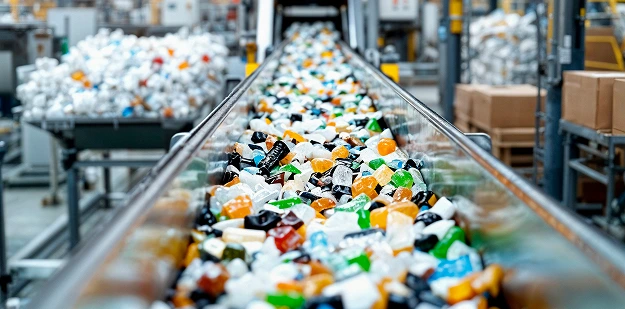Engineering a
Sustainable
Tomorrow
From smarter material choices to efficient waste management, JPI is committed to reducing environmental impact while delivering world-class packaging solutions.
Why Sustainability
Matters to JPI

Why Sustainability Matters to JPI
For over three decades, Jayasinghe Plastic Industries (JPI) has been at the forefront of Sri Lanka’s plastic packaging sector. From a humble backyard operation in Matugama, we’ve grown into one of the most technologically advanced packaging manufacturers in the region, serving industries from food and beverage to pharmaceuticals and industrial applications. Our commitment to quality, innovation, and sustainability has made us a trusted partner for both local and global brands.
EFficient Waste
Management
Segregation at Source
Separate waste streams for maximum recycling efficiency.
Closed-Loop Processing
Reprocess all scraps into new usable products.
Certified Disposal Partners
Work with accredited firms for safe waste handling.
Zero Plastic Landfill Target
Aim to eliminate all landfill contributions.
Smarter Materials, Sustainable Impact

Bio-Based Plastics
We integrate plant-derived polymers into our production, replacing petroleum-based plastics with renewable alternatives. This reduces dependence on fossil fuels while maintaining durability and performance for food, personal care, and industrial packaging applications.

Recycled Resin Integration
Post-consumer recycled resins are incorporated into our manufacturing, giving plastics a second life. This approach diverts waste from landfills while maintaining the structural integrity and safety standards required for high-quality packaging solutions.

Lightweighting Innovation
Our engineering teams optimize packaging designs to use less material without sacrificing strength. Lightweighting reduces transport emissions, lowers production costs, and supports a more efficient and sustainable packaging lifecycle from production to delivery.

Optimized Material Sourcing
We partner with certified suppliers to source raw materials responsibly. This ensures every component meets strict sustainability criteria, supporting traceability, ethical practices, and reduced environmental impact across the entire supply chain.




